
Smallholders based on the New Forest are hoping that official recognition of Pannage pork, the result of pigs kept for 60 days on the Forest every autumn, will result in a better return for the pork produced.
The annual procedure dates back to William the Conqueror. But in February 2023 the Government's Geographical Indication placed Pannage pork, as it is known, on a level with other protected agricultural products such as Melton Mowbray pork pies, and Welsh leeks..
The New Forest with its 1,000 acres of grazing, and protected peacefulness has been particularly attractive to would be smallholders over the years. Those who own land on the Forest are known as Commoners and have the right to let their pigs out for sixty days from mid-September to harvest the acorns, which prove poisonous to horses and cattle, and as a bonus there are beech nuts to augment this diet.
FASCINATION FOR THE FOREST
Most smallholders have done another job before they arrive here. Such a person is Nigel Forsyth, who first earned his living in London running his own company that was involved in the world of branding setups. He sold his first company and set up another, and sold that one as well, amassing enough finance to do what he really wanted to do- live a more environmental and country surrounded life.
He had started with a weekend cottage when he was still based all week working in London. But then he got "something to play with. "Ten acres, and he was interested in bee keeping, learned how to keep them and kept two hives. The Forest fascinated him so he became a Forest Ranger to learn how it worked. As he admits "Helping the people who could do it It got me interested in the skills used in the Forest".
He confesses: "I didn't set out to be a smallholder. I got tempted into it".
This story is from the {{IssueName}} edition of {{MagazineName}}.
Start your 7-day Magzter GOLD free trial to access thousands of curated premium stories, and 9,000+ magazines and newspapers.
Already a subscriber ? Sign In
This story is from the {{IssueName}} edition of {{MagazineName}}.
Start your 7-day Magzter GOLD free trial to access thousands of curated premium stories, and 9,000+ magazines and newspapers.
Already a subscriber? Sign In
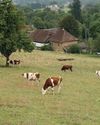
How to Buy a Smallholding in France- Long-time smallholder Lorraine Turnbull looks at the practicalities of moving to rural France
Aspiring smallholders are continually thwarted by the prices of smallholdings and property with land located within the UK. Even the humblest croft in Scotland comes with a substantial price tag and conditions which would make even an adventurous wannabee consider carefully. But all is not lost. For those willing to take the adventure of a lifetime, there is always Europe, and one of the most popular places is France.

Meet the Bournemouth goats and their supporters
These capricious animals are hard workers preserving the natural habitat
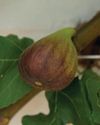
Still warm enough to sit outside with a Pizza
Henrietta Balcon uses fresh figs to create an unusual dish at Harvest time
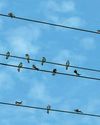
Goodbye to the birds of spring and summer
If you look and listen you might be able to see them preparing to leave says The RSPB
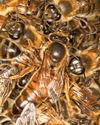
Get ready for the colder weather in the warmth of late summer
Claire Waring advises on doing the best to make sure your colonies survive until next spring
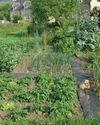
Preparing the Veg Patch for Winter
Lee Senior says, a well-run plot can excitingly continue to produce good quality, tasty, fresh food for much of winter
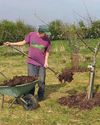
Time to prepare to plant your orchard
Wade Muggleton, smallholder and author of The Orchard Book, shares his practical experience so you can create your own fruit collection
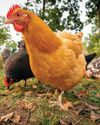
Choosing feed for the autumn
As autumn approaches, Joanna Palmer, nutritionist at the Smallholder Range, offers advice on choosing the right feed to support your adult birds through their annual moult and ensure your young birds grow and finish well at this time of the year.
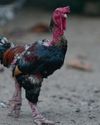
Vet advice from an experienced poultry vet
Reflecting on how much the humble hen has helped people world wide plus advice on stopping the scourge of red mite
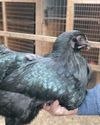
Give your hens some support
Paul Donovan looks at the right and wrong ways of handling birds